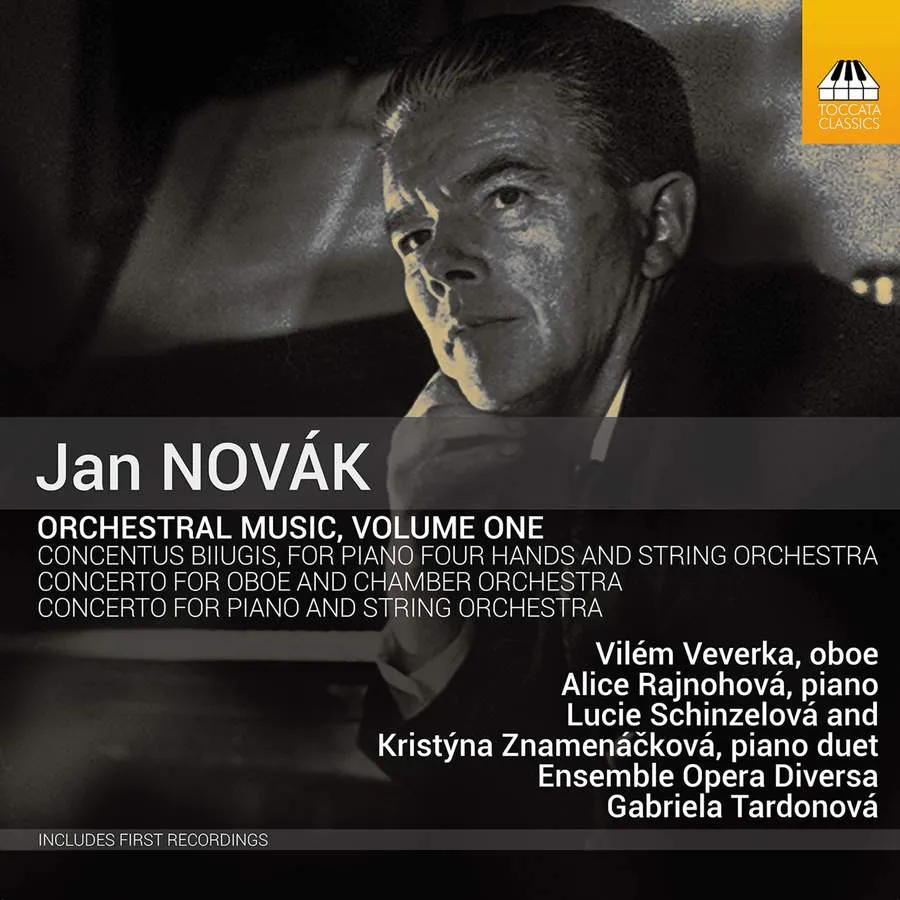
J Novák Piano Concerto; Oboe Concerto; Concentus biiugis* Vilém Veverka (oboe), Alice Rajnohová (piano), *Lucie Schinzelová, Kristýna Znamenáčková (piano duo); Ensemble Opera Diversa/Gabriela Tardonová Toccata Classics TOCC 0551 75:06 mins
The Moravian composer Jan Novák (1921-84) – no relation of Dvořák’s better known pupil, Vítězslav Novák – was a fascinating and appealing figure in post-war Czech music. Something of a polymath, he wrote prize-winning Latin poetry and composed extensively for film. His early promise led to a scholarship enabling him to study in the USA first with Copland and privately with Martinů. Like many Czech composers in the early 1960s, he experimented with 12-note techniques, but his main affinities were with the music of Martinů, in particular his neo-baroque style, and Moravian folksong.
The earliest of his works on this enjoyable recording is the Piano Concerto of 1949. Martinů’s influence is clear in the motor-rhythms which open the first movement and in the lyrical, sweetly harmonised secondary material. The orchestral ensemble is at times a touch wayward, but Alice Rajnohová’s solo playing has just the right amount of enthusiasm and energy. The oboe concerto, composed three years later, benefits from being more succinct than the piano concerto with a stronger sense of direction in the outer movements and an attractively whimsical central Andante played with evident relish by both soloist and orchestra. The Double Piano Concerto from 1977 is more characterful than either of the earlier works with a slow movement of compelling originality. The recording could have favoured the orchestra a little more, and the performances overall are sound rather than sensational, but they have a refreshing quality and for anyone interested in mid-20th-century Czech music are well worth investigating.
Jan Smaczny
More reviews
Exposing the overlooked genius of Bacewicz
An essential Vaughan Williams Mass
An explosive production of Massenet’s masterpiece
Two double acts take on Martinů doubles
